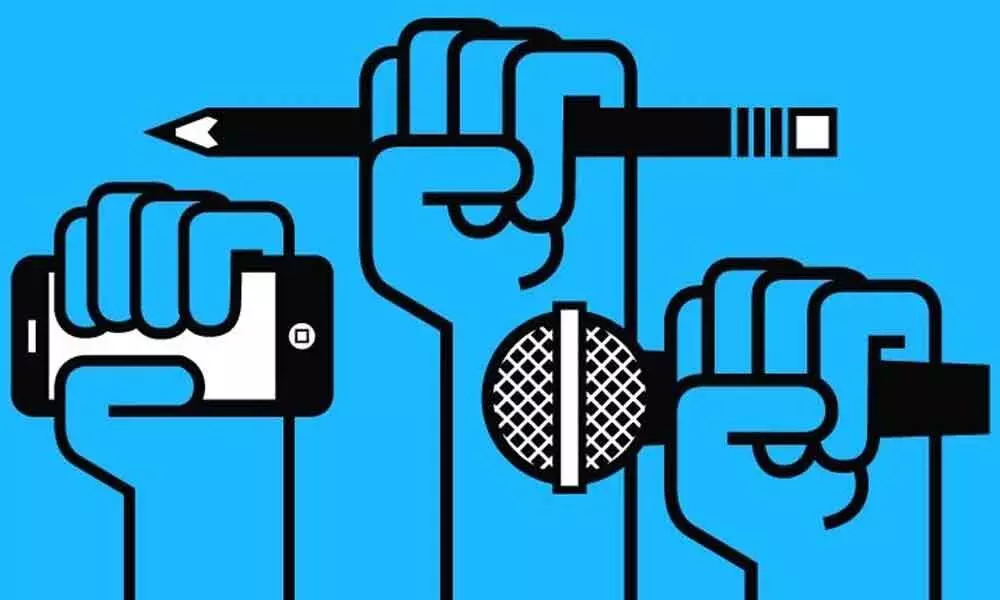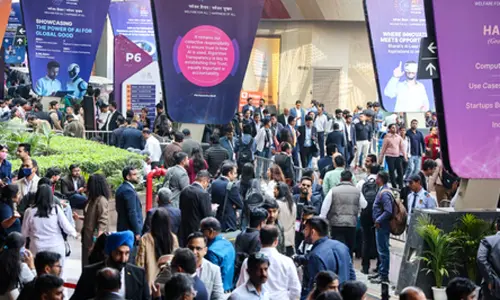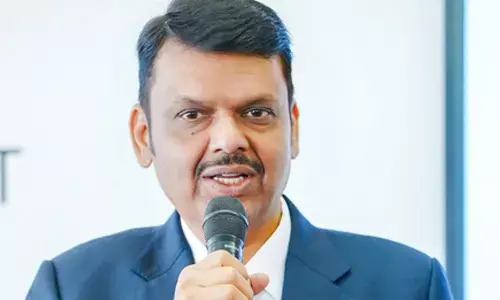Redefine freedom of press issue once and for all

Redefine freedom of press issue once and for all
Article 19 of the Constitution of India implicitly mentions freedom of press and allows a journalist or media outlet to cover any story and bring it to the audiences without impacting the national security of the country.
Article 19 of the Constitution of India implicitly mentions freedom of press and allows a journalist or media outlet to cover any story and bring it to the audiences without impacting the national security of the country. However, according to the World Press Index 2021, India ranks 147 out of 180 countries in terms of the freedom of press. This status is despite having freedom of thought and expression and press freedom enshrined in the Constitution.
When we see every freedom mentioned in Article 19 is restricted if it goes against the sovereignty, security and national interest, then why is that the freedom of press, whose very existence is in the national interest, is restricted because of the constraints caused by the hostility of the government. When the press is termed as the Fourth Estate, then it should be allowed to function independently and to do what it ought to do.
The Legislature makes laws, the executive executes the laws after scrutiny and the judiciary is to protect the laws. The media, in the capacity of the fourth wing of the State, has to bring to the notice of the people and the government any violation of the law. The functioning of each of this organ is clearly defined and it is expected to function in the domain limits. If the government derives its powers from the Constitution, then even the media is working with the conferred powers.
The killing of Gauri Lankesh clearly shows how the media has been suppressed over the years. More than ever, the sedition charges, the defamation cases, the onslaught against criticism and the killings of the journalists have increased over the years and this is happening more since 2014 even as the country's prime minister gives lectures about the vibrant press and "strongly opposes those who throttle it."
The first time it happened was back then during 1975-1977under the national emergency when the newspapers were censored by illogical methods used by the government by legalizing arbitrary laws. Later, the subsequent governmentmay have undone it and revived the press freedom but it seems that the brunt of those illegal laws is felt to this day.
Looking back into history, even the Congress, which is now blaming the BJP for its handling of the press, was no bettercomparatively. The Congress, during its heydays, was well known for its intolerance when it came to criticism by the media. Kapil Sibal, the former IT minister, was also seen openly calling for a ban on "hateful content" generating on websites.On April 23, 2020, Republic TV Chief Arnab Goswami was attacked by Congress party workers after he had questioned Congress President Sonia Gandhi over her silence on the Palghar lynching case.
The Press derives its teeth from the Constitution and not from the government of the day. It is the judiciary, not the executive, which has to look into the violations of the Constitution and the fundamental rights of citizens. Hence, is for the Supreme Court to once again interpret the freedom of media and fix the parameters. The recent case of Vinod Dua afforded an opportunity for the apex court to revisit the laws and or form an impartial committee to set standardrules for carrying out the activities of the media.
The Supreme Court, on 3rd June 2021, said that every journalist is entitled to protection and any detention or FIR is subject to the law laid down earlier. At a time when India is on its path of self-reliance, the first issues at hand are to be dealt with.Democracy is the government of the people and the media is its integral part.
The quality of the freedom of press dictates the status of the country across the world. This will indirectly affect the investment, tourism, development and growth of the country.Moreover, today the new media has taken the world by storm and in this scenario, the privacy issues of the social media have to be settled for the last time. There is a need for social media giants' investment in India and the country cannot forgo it.








